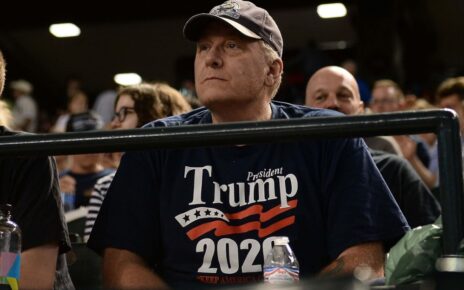Recently I was listening to an episode of the Effectively Wild podcast. The episode in question was number 1487, We Remembered Some Guys. The basic gist of the episode was that co-hosts Ben Lindbergh and Sam Miller (Meg Rowley is also a co-host but was not involved in the majority of the episode) were briefly discussing the new additions to this year’s National Baseball Hall of Fame ballot. The idea was birthed from a segment David Roth used to run for Deadspin before it became a hollowed-out husk of corporate greed. The Roth videos were always great and this edition of Effectively Wild was also, like usual, great.
The episode resonated with me because it got me to thinking about baseball history and the way we incorporate it in our podcasting, writing, research, etc. The specific train of thought that I couldn’t get out of my head was how with a few exceptions we are all guilty of shortchanging the Negro Leagues when it comes to our discussions of baseball history. Days later I still can’t get the thought out of my head. Every discussion I have with fellow baseball writers, researchers, and fans now I hear a little voice in the back of my head saying over and over again, “you’re forgetting about the Negro Leagues.”
I write a lot about the Negro Leagues and plan to continue my Negro Leagues writing until the day I can no longer mentally write about baseball. It’s good that I write about the Negro Leagues and that others like Phil Dixon, Larry Lester, Gary Ashwill and more continue to write far better, and provide more valuable research, about the Negro Leagues than I could ever dream of doing. The problem is that all of us who write about and research the Negro Leagues have been confined to a niche corner of the baseball research/writing/podcasting world. There are many reasons for this, all of which I feel can be easily overcome, but I’m not sure if we will ever get to that point.
Let’s start with a positive that also highlights a negative. That positive is Joe Posnanski and his baseball writing. For years now Posnanski has written about baseball and has included the Negro Leagues in his writing right alongside the rest of the baseball world. Posnanski doesn’t present the Negro Leagues, specifically the Negro major leagues, as some sort of outlier. Rather, he includes them as baseball, the same as the history of Major League Baseball. The negative comes in how some fans react to this. For evidence read the profiles Posnanski has provided of Negro Leagues players that he’s included in his Baseball 100 project for The Athletic. Inevitably the comments boil down to a questioning of the relevance of the Negro Leagues, how good the players actually were, and how in any way Posnanski can justify including any Negro Leagues player over MLB player X, Y, or Z? This isn’t always based on race, as often commenters are upset that a modern black player might not make the list while, say, Bullet Rogan did.
The comments left on Posnanski’s articles stem from a number of problems with the way we sequester the Negro Leagues into their own little section of baseball history. It’s almost as if because white baseball owners in the late 1800s decided that black ballplayers couldn’t play in their leagues that we still think Negro League players from the days of their imposed segregation deserve to be segregated. One of the reasons fans, writers, and researchers think this is because it’s always the way it’s been. Writers in the 1920s didn’t include the Negro major leagues with the white major leagues, and the same was true in the 1940s, 1970s, and it remains true today. The people who frame the way we think and discuss baseball decided that Negro Leagues history needed to be kept in a tidy box far removed from white baseball history. That has stuck, and it’s still present today where we get great articles discussing the amazing players Mike Trout is passing in WAR every season, but never any Negro Leagues players that he’s passing.
The argument, of course, is that Negro Leagues players can’t be included in such articles because we don’t know what their WAR was. That’s both true and false at the same time. There’s been plenty of research done into the Negro Leagues that has led to a pretty complete picture for the majority of Negro Leagues players. A site like Seamheads Negro Leagues Database has been able to put together completely documented seasons for the majority of the Negro major leagues and is working on fleshing out the still incomplete seasons. Seamheads isn’t Baseball Reference, or Baseball Prospectus, or FanGraphs, and that’s the problem. FanGraphs and Baseball Prospectus don’t include Negro League players period in their database. Baseball Reference does but they are relegated to the other stats section and thus aren’t easy to search or find on the site. These sites serve as modern reference materials for baseball and they tell anyone doing research that Negro League stats simply don’t belong in the same discussion with those of Major League Baseball, even if the Negro major leagues are the Negro Leagues in question.
People will retort to the above with, “there are no Negro major leagues.” This is also part of the problem because it too is both true and false at the same time. It is true that MLB and its historians have refused to grant any Negro league the major label. At the same time, it is false that there weren’t any Negro major leagues. Negro Leagues historians, as well as plain old historians, have agreed for years now that there were at least six, if not more, Negro leagues that qualify as major leagues. Similar to the above reference sites, baseball fandom and culture have decided that MLB and its historians are the arbiters of baseball history. If the official historians of MLB, and thus baseball, aren’t willing to free the Negro Leagues from their place in the corner where they are kept separate from the white leagues of their time and the integrated leagues of today then why would any fan think all those leagues should be treated as one and the same? I’ve written extensively about the Negro major league issue in the past, and honestly, if it doesn’t infuriate you as a baseball fan I’m not sure you actually care about baseball and its legacy.
Add all of these factors together and you have the present state of Negro Leagues and baseball history. Countless articles come out on a weekly basis from numerous sites and publications delving into the history of baseball as well as the modern game. Ninety-nine percent of those articles refuse to include Negro Leagues with either the segregated white leagues or integrated modern leagues. Bill James published two books dedicated to the history of baseball. Those books are extensive and massive, yet the Negro Leagues got one chapter and no Negro Leagues players were included in the positional rankings. All the reasons I listed above are valid, but in reality, the reason the Negro Leagues continue to be snubbed by James and other writers, researchers, and historians is laziness. Excuses are made and lies are told about missing Negro Leagues data, or how hard it is to map a standard Negro major league season to that of an MLB season.
The reasons listed above are exactly as I have framed them, excuses. Negro Leagues stats could be included right alongside their white counterparts or modern game stats with little problems. Instead, we have three monstrous repositories of MLB history that leave out huge swaths of baseball and legitimate major league history. Baseball Reference is a site built on ease of use, but that ease of use disappears when the Negro Leagues are the basis for the research being done. Negro major league stats, results, etc. should be included in the Play Index, or in Baseball Prospectus’ proprietary metrics (researchers at Baseball Prospectus have stated they want to add Negro Leagues stats to the site, but, it’s unclear whether would be mixed in with the other white/integrated leagues or kept separate), or FanGraphs’ historical leaderboards. They aren’t because keeping the status quo and putting forth the neutered version of history that has dominated the baseball landscape for decades is far easier than stepping outside of the norm and giving the Negro major leagues (at the very least these leagues, but preferably all Negro leagues) their due.
To be clear, since they started this train of thought, I like Roth’s work and I am a longtime Effectively Wild listener and reader of all three hosts writing. I don’t have any personal issues with any of them, or Roth who I also enjoy, and am not attacking them in any way. I like a lot of baseball writers and podcasters who I may not have named in this article but still took to task in spirit. Heck, I deserve to be taken to task for the way I still neglect the Negro Leagues in my own research and way of talking about baseball. We’re all at fault here, none of us are bad (well, maybe some of us), but we can easily change the discussion if we take the steps necessary to enact that change.
Lead photo courtesy of Unknown – The Baseball Scholar





lol imagine thinking your schilling takes are good. Dude is gonna get into the Hall next year by himself and it’s gonna be hilarious to watch giant assholes like you lose your minds over it. Your writing sucks, by the way.
Thanks for reading 😘